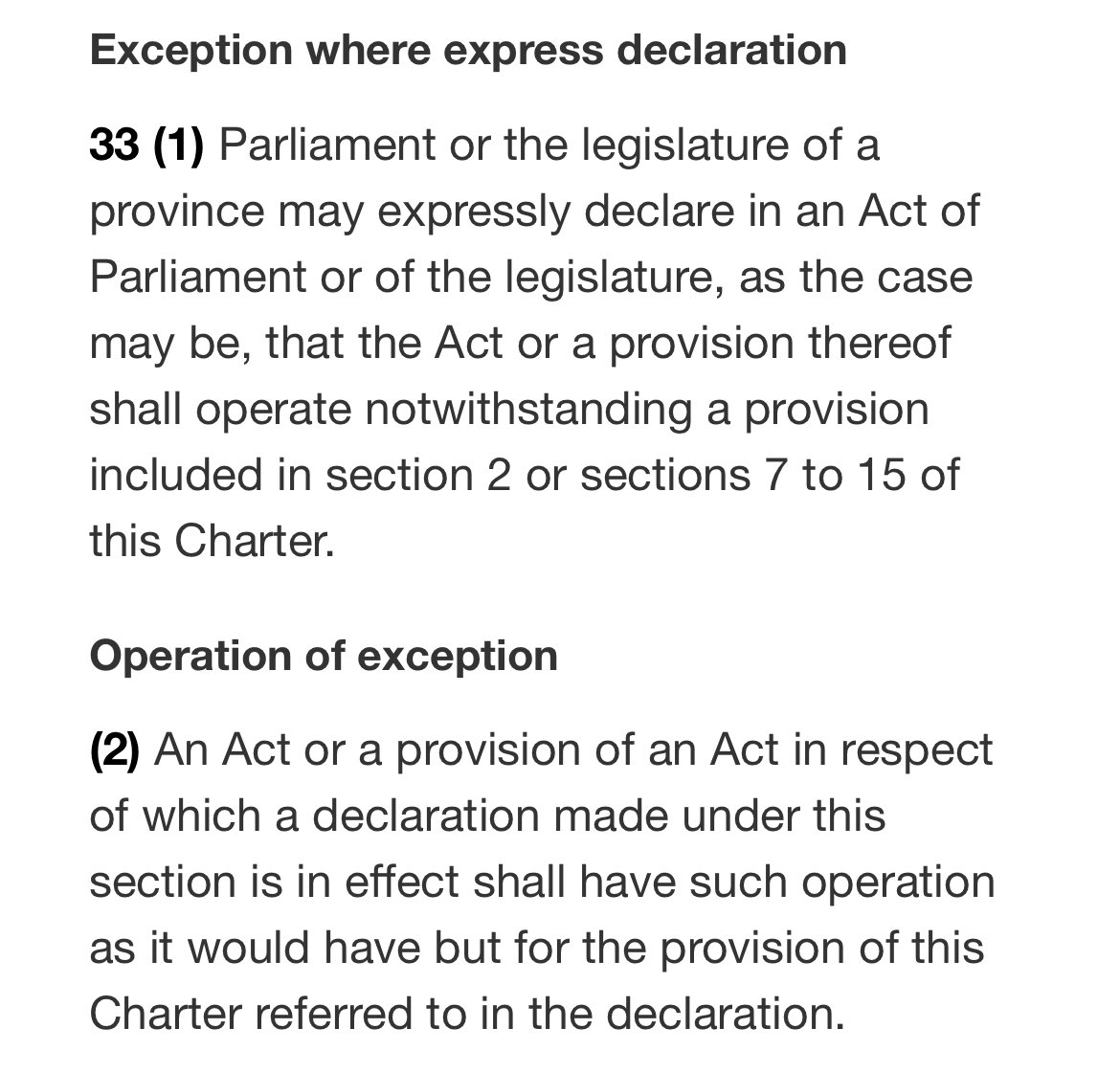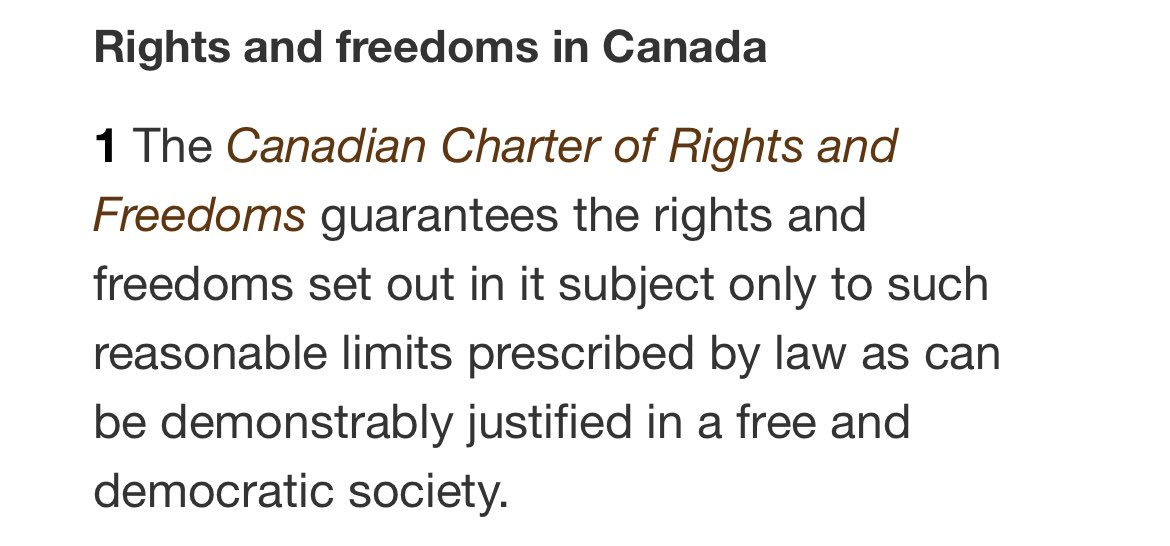So I didn't think I'd have to do this, but because an MP is tweeting out nonsense that they should, or reasonably should, know is both wrong and inflammatory for partisan gain, I have no choice.
The "Liberal Government" isn't taking the Speaker to court for "doing his job". /1
The "Liberal Government" isn't taking the Speaker to court for "doing his job". /1
https://twitter.com/GarnettGenuis/status/1407791358920773634
The AG's office (which is independent from the whims of the PMO/GiC) is acting under a statutory requirement of the Canada Evidence Act ("CEA"). The CEA *requires* that the AG act in this way when there is going to be the release of documents that it believes may... /2
have an adverse impact on national security or on international relations (s. 38 of CEA). This is done by a specific department in the AG's office - again, this is not directed by, at the behest of, or under the control of the Government. /3
So when the AG activates s. 38 it issues a s. 38 notice to the relevant party prohibiting disclosure (punishable as an indictable offence). It also prohibits disclosure that the notice itself exists until the AG makes it public. /4
This usually becomes public when the AG brings an application to a specially designated judge of the Fed. Ct. naming the parties to receive the information as respondents. The process then largely moves behind closed does on an ex parte basis... /5
That means the AG presents the arguments (on a full and frank disclosure basis) to the judge without the participation of any of the other parties. The judge *usually* appoints an amicus to present an alternative viewpoint. They then seek public input from the parties. /6
Note: this public input is *without* seeing the documents. Those are kept under wraps until the judge either (1) confirms the AG's redactions; (2) annuls them and orders production; or (3) a mix of the two. This process is normal, and done to protect Nat Sec/IR. /7
Now what's important to note is that this isn't "going rogue against the will of Parliament". Here we have two Parliamentary wills that are in apparent conflict: on the one hand the CEA and its mandatory redaction scheme, on the other the motion and its production demand. /8
So this isn't "Parliament vs. the Courts" or "Parliament vs. the Government" - this is Parliament vs itself. So what should win? Let's look at a few of the factors (and full apologies to @Randal_Graham for likely mangling all that fine stat interp you drilled into me). /9
There are a number of principles. The first being temporal nature. Generally in a conflict between two pieces of legislation the newer statute "wins". This is from a presumption that Parliament turned its mind to the issue and chose to implement the conflicting measure. /10
But that principle isn't absolute. Section 38 isn't a secret. It would have been trivial for Parliament to expressly disclaim the application of section 38 (or indeed all of the CEA) in its Order. It didn't do so, it only made a broad statement about redaction. /11
Even so, I'd say this principle would push this towards the House's position. But this principle isn't a stand alone principle: there's also a question of specific vs. general (where a more specific act tends to trump a more general one). In this you can read it both ways. /12
On the one hand the Order is about one specific instance, whereas s. 38 applies to all disclosures. That would favour the Order. But on the other hand the Order is about production, getting the minister to appear, and all facets of the Winnipeg lab issue... /13
whereas s. 38 is *only* about national security and international relations. That would favour giving greater weight to s. 38.
So the TLDR is that this is complicated and there are arguments on both sides. Do I know where a court will fall? Nope, but... /14
So the TLDR is that this is complicated and there are arguments on both sides. Do I know where a court will fall? Nope, but... /14
it is something that likely can be fought over, and doesn't seem to be something that's an immediately cut and dried issue. If Parliament had expressly annulled s. 38 in its demand then we might not be here - but play stupid games, win stupid prizes. /15
• • •
Missing some Tweet in this thread? You can try to
force a refresh






